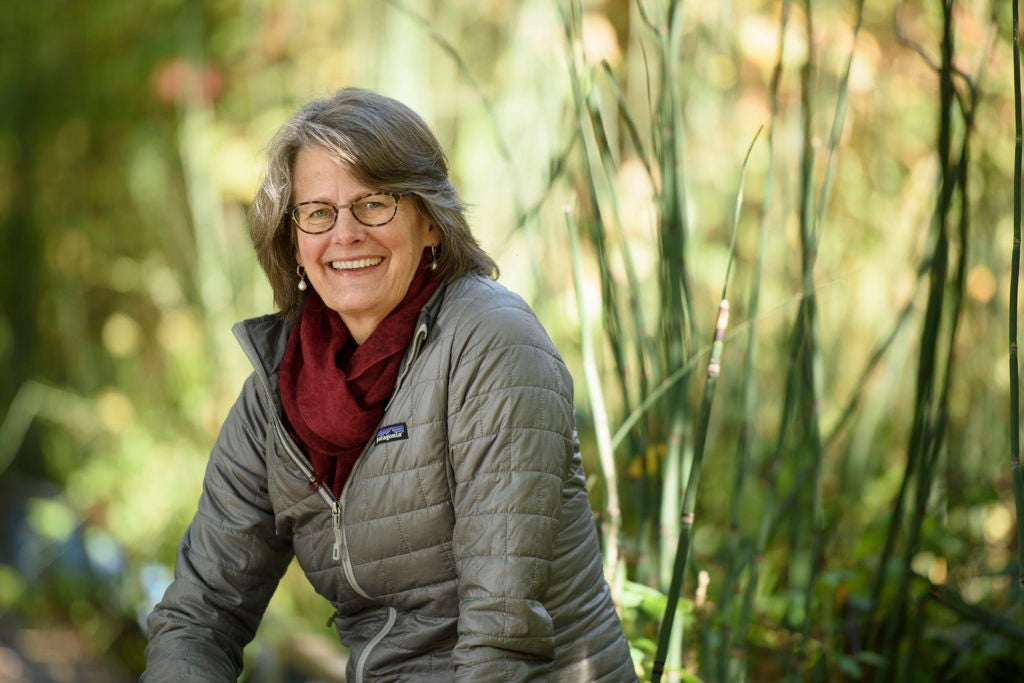Attenborough ‘Extinction’ documentary features Stanford biologist
Stanford biologist Elizabeth Hadly is a featured expert in the documentary Extinction: The Facts, present by Sir David Attenborough. The Woods Institute will host a panel discussion of the film on April 14.
Elizabeth Hadly, a professor of biology at Stanford University, appears in Extinction: The Facts, a documentary presented by Sir David Attenborough featuring the world’s experts on the dire consequences of biodiversity loss.
The film highlights the threats to the diversity of plants and animals on the planet. Scientists estimate that one million plant and animal species are facing extinction, and the documentary points to humans as a major driver. This not only has dire consequences for the planet but also our own wellbeing, Hadly said, including threatening food and water security and making us more susceptible to pandemic diseases.
“A lot of us grew up watching David Attenborough’s documentaries because he exemplified the magic of life in an engaging and joyful way,” she added. “This is one of the first things he’s done where he wrestled with the sadness and tragedy of biodiversity loss. I felt honored to be invited to take part in this film.”
The hour-long documentary, which originally aired on the BBC, will be available to American viewers on PBS starting on Wednesday, March 31 at 8 p.m. PT (8 p.m. ET/7 p.m. CT). The Stanford Woods Institute for the Environment will be hosting a panel event on April 14 to discuss the film and the topics it covers, including biodiversity loss, zoonotic disease (such as COVID-19), habitat destruction and other related topics. That event is open to the public and anyone interested in attending can RSVP here.
Hadly was interviewed for the documentary in response to a 2019 landmark report on the state of biodiversity and ecosystem services from the Intergovernmental Science-Policy Platform on Biodiversity and Ecosystem Services (IPBES). In the film, she talks about how changes in human activity influence the trajectory of life on Earth, explaining how these things are linked and lead to biodiversity decline. Hadly said the documentary also contains a message about how we can each help address this problem. Indeed, nature can recover, but it is critical that we act quickly.
“We’re in a big, very fast-driving vehicle and there is a giant wall ahead of us. The question is, can we stop in time?” Hadly said. “We have done amazing things in the past very quickly when we rally together.”
Hadly is the Paul S. and Billie Achilles Professor of Environmental Biology and senior fellow at the Stanford Woods Institute. Her research interests include the drivers of biodiversity and dynamics throughout time, particularly in the Anthropocene – the period of Earth’s history that has been dominated by humans. Hadly’s work has increasingly focused on endangered species, and her most recent paper focused on the genomes of extant wild tiger populations.
To read all stories about Stanford science, subscribe to the biweekly Stanford Science Digest.
